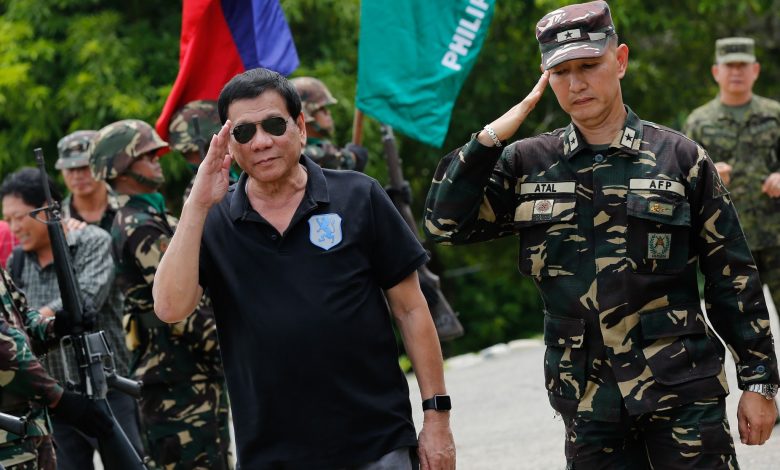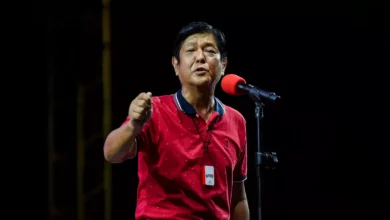
Duterte’s COVID-19 Plan EXPLAINED
When word came down from President Duterte and the Inter-Agency Task Force (IATF) to put the entire Luzon on de facto lockdown, many thought they had hatched a half-assed COVID-19 plan. There were no clear instructions, and the President seemed to have conveniently passed the responsibility to local governments – a cowardly act.
Expectedly, people took to social media to spew their disapproval. Local governments scrambled to crunch their calamity funds, and figure out creative ways to urgently help their constituents. To shut down approximately half of our hundred-million large national population was unthinkable. But they thought it was the best thing to do. Why? How? We have a very good guess.
An Adaptive Government
What the President and the IATF chose to go with is something we can classify under an “Adaptive System of Governance” – a still rather novel way of doing things, specially in response to a pandemic.
This management technique is applied more commonly to unforeseen circumstances (this is certainly one), wherein to improvise and keep an open mind to finding solutions, and allow for significant collaboration (notice how hard he was on Barangay Captains and other local government officials), is the progressive way to go.
Basically, as a leader, you determine your objectives, then cascade it to your underlings for them to execute in a tailor-fitted way. It recognizes how contexts and systems are different, as well as individual styles of leadership and relationship with constituents.
What President Duterte did with his COVID-19 plan was to set in stone what the national government wanted to achieve: contain the virus. Stop the spread, and treat the patients. All of course, with the minimum amount of damage inflicted on the population and the economy.
Duterte let local governments improvise – adjust and lead according to how they see fit. And the result? The competent ones performed – Vico Sotto of Pasig, Isko Moreno of Manila, Lino Cayetano of Taguig, Marcy Teodoro of Marikina, Kit Nieto of Cainta, and so on. Others have not fared as well.
A Longer Leash for Local Government
Think of it as a longer leash – which allows the dog to move more. But yes, it also allows for a healthy amount of mistakes, and an open window for danger.
Why does this work? Because local governments know their towns, cities, and their people best. They know how things work on the ground, it’s no longer just textbook application and hypotheses – alam na yung galawan. Kilala na nila kung sino yung mga Kapitan na inuuna yung kamag-anak, na aabusuhin yung paggamit ng ambulansya, atbp. Nobody can lead better than those people. But what if someone decides to abuse their power? That’s what the military is there for – to keep people protected.
To better understand this Adaptive System of Governance, try to recall how teachers deal with their students. It’s not always the same. Across several years, going through the same experiences with your classmates and friends, you’ll be able to recall that favorable treatment, punishment, and even testing (recitation) was never really equal. Teachers always adjusted. They knew who were the weaker students, and they paid more attention to them. They let the smart kids speak, so the rest of the class can keep learning. Everyone in the middle was just left to fend for themselves.
The same goes for cities. Any COVID-19 plan wouldn’t have worked if implemented equally and completely across the country. Whether it be mainland Luzon, with or without the islands, Mindanao – fair and even application is simply impossible. A one-size-fits-all plan simply wouldn’t work.
In the military, this is called “Mission Command” – a combination of “centralized intent with decentralized execution” – a plan that can be carried out quickly, recognizing the constraints, and adjusting as you go along.
Old Habits Die Hard
If you think about it, Duterte has always been adaptive. As a Davao City Mayor for many years, and in his 3.5 years as President, he has certainly come off as a loose cannon to many. But what that loose cannon has fired upon, it has hit – many, many times.
From the ambitious ‘Build, Build, Build’ program that has put the country back on the global investment map, to the controversial War on Drugs that has changed the lives of millions for the better, and now with this non-traditional COVID-19 plan.
Of course, the work is really just getting started. The cities, towns, and provinces that have not been able to execute the plan properly need support. And the national government will be there to provide it – the DILG, the Armed Forces, etc. Over P27 billion of funds have been earmarked for this unprecedented response.
We will get through this. What the national government needs to do is simply continue staying on top of everything. They should keep their communication lines open, continue working with local governments that need the help. Revisit plans, recalibrate measures, figure things out together. This may be an experiment done on the fly, but that doesn’t mean it cannot work. We’re already doing it – we’re saving countless lives everyday.
And what about us ordinary citizens, what can we do? Just follow the government’s instructions – stay inside your homes, limit your contact with others, and wait out this pandemic. This COVID-19 plan may just be the antidote. Let’s have faith in each other.




